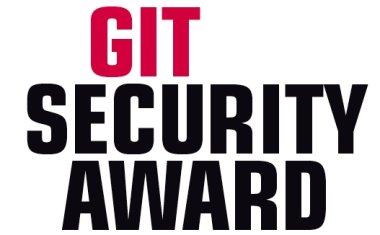G4S Security Solutions: public and private sectors should work together for protecting global national infrastructure
G4S Security Solutions: public and private sectors should work together for protecting global national infrastructure. As global security threats continue to grow the protection of...
G4S Security Solutions: public and private sectors should work together for protecting global national infrastructure. As global security threats continue to grow the protection of critical national infrastructure (CNI) has become an important area in which the public and private sectors need to work more closely together. This is becoming ever more important as governments are increasingly unable to provide the necessary wide ranging and rapid support they once may have been able to provide. There is no credible choice but to involve the private sector, which already funds, builds and operates critical infrastructure, more fully in its protection.
The former US President, Bill Clinton, summed up CNI’s importance when he said it was “critical infrastructures that are so vital that their incapacity or destruction would have a debilitating impact on the defence or economic security of the nation”. In the UK, the Government’s Centre for the Protection of the National Infrastructure sets out nine CNI sectors: communications; emergency services; energy; finance; food; government services; health; transport; and water. Without these services, any state could suffer serious consequences, including economic damage, social disruption or even the large-scale loss of life.
Therefore it is beholden on industries in these key sectors to wake up to the realisation that securing their facilities is crucial. Terrorist attacks and insurgency remain the key threats and the issues which dominate the headlines, particularly following the recent outrages in Mumbai and Lahore. The difficulty on countering these threats is driven by their dependence on disparate social networks across international boundaries and the difficulty of identification of those involved.
However, there is a huge risk if our efforts and expenditure decisions are dominated by terrorism alone. Companies need to consider a wider range of risks they may face, from natural disasters to the growth in more malicious activism. The devastation caused by Hurricane Katrina, the 2004 tsunami or even the more recent floods across the UK, threatened the viability of communities and the infrastructure upon which they depend. Companies need to start preparing now to effectively combat this growing spread of national and international threats.
When a disaster strikes, we assume that it should be governments and their agencies which will spring into action to provide essential services and infrastructure recovery, restoring social and economic normality. We also tend to pin the blame on government if there is chaos and disruption following any event we judge to have been foreseeable, avoidable or easily controlled. However, whilst governments do prepare for such events, providing in many cases an excellent response, emergency services and armed forces are often stretched to their limits due to operational or budgetary constraints.
There is also the complicating factor that national governments and agencies are also not always able to deal with international incidents for a wide range of reasons from political to a lack of capability. So where can they find additional resources that can not only protect assets but also help them assess the threats to which they’re exposed? The obvious response is the international security industry which has rapidly deployable resources across the globe and a major vested interest in helping to prevent and minimise the effects of CNI disruptions. Companies within this industry already have the expertise to handle these tasks, both domestically and when necessary overseas.
We protect airports, power stations, water treatment centres and banks in many countries and, in some of them, we also build and operate critical infrastructure such as prisons, youth offender facilities and cash centres. As both CNI operator and protector, this puts us in a strong position to deliver real support to governments seeking to improve national resilience.
So what should Governments do?
To kick start the process they need to force all relevant parts of the private sector to take protection of CNI more seriously by creating explicit obligations on owners and managers to protect their infrastructure, as the UK Government already does for those in the aviation or water industries. These obligations can be created either through legislation or through regulation: but until they are there, businesses will continue to ignore the problem for financial or operational reasons.
Governments can also take a more pragmatic approach to using the private sector to operate, protect and provide surge capacity in the protection of CNI both at home and abroad. In many circumstances, the private sector’s flexible, national and international resources are equal to or superior to those owned by individual governments and as such should be trusted to perform as required. Take G4S for example. In North America, we are already relied on to secure over 50 per cent of commercial nuclear power stations and to protect high sensitivity sites such as the Pentagon and NASA.
In Europe, we protect the European Parliament, NATO headquarters, a number of secure UK Government facilities and a growing list of major international ports and airports such as Amsterdam’s Schipol airport and Heathrow International. We also protect Embassies and diplomats for the UK, US and other sovereign governments in a wide range of complex environments around the world as well as providing timely, emergency cross-border services which far outstripped the efforts of individual government agencies With the pressure on Government agencies to produce ever more accurate and pre-emptive intelligence, the private sector organisations, with its comprehensive international networks, offer new avenues to providing appropriate intelligence.
After all, the private sector has been using private security risk and advisory consultancies to provide business intelligence for many years. Making such intelligence networks available to the public sector is simply common sense. Therefore the private sector has already proved the very real benefits of using it to provide CNI-related services previously thought of as the exclusive domain of the public sector.
In reality there is no alternative but for the public and private sector to work together to protect and build critical infrastructures. Governments that choose to maintain the status quo rather than involve the private sector in CNI protection are taking unnecessary risks and ultimately over stretching their resources and exposing their CNI to potential attacks.
Contact:
David Taylor-Smith
G4S Security Solutions, Sutton, United Kingdom
Tel.: +44 20 8770 7000
www.g4tec.com/uk










